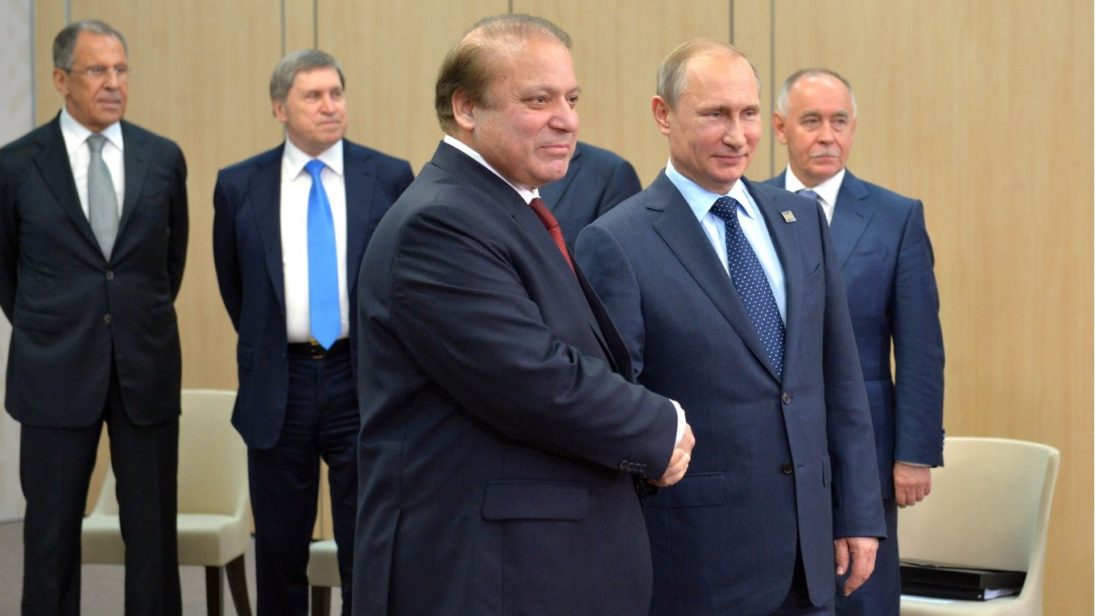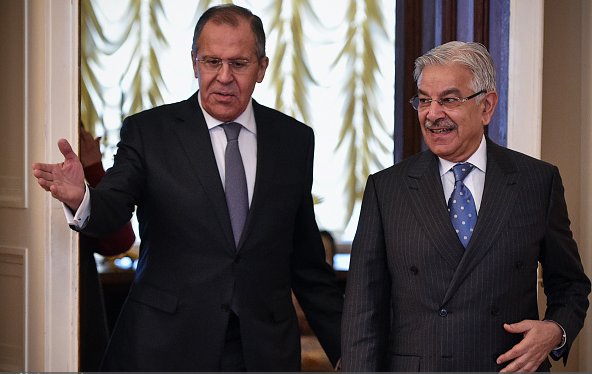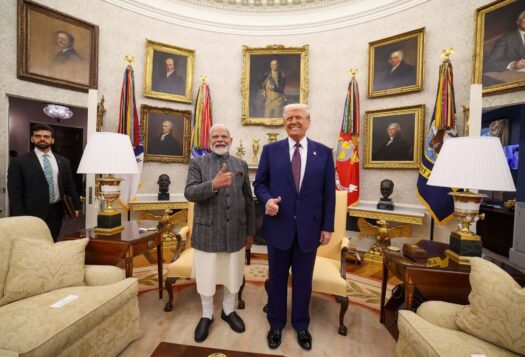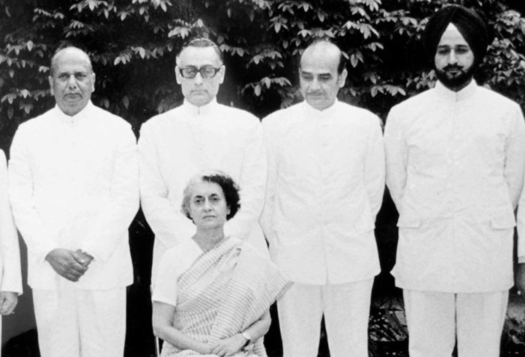
Daesh’s transnational threat of establishing an Islamic State spanning the Middle East and Africa all the way to Southeast Asia has drawn unlikely regional partners to join together to counter it. Pakistan, a U.S. ally, fought the Soviet Union in Afghanistan in the 1980s. However, with Daesh now making inroads into Afghanistan, Islamabad and Moscow are planning to cooperate to counter the threat of Daesh’s regional affiliate, the Islamic State-Khorasan Province (ISKP), under the framework of a recently-formed anti-terror cooperative military commission. The convergence of their strategic interests with regard to Afghanistan, coupled with their deepening military-to-military relationship, has given way to the real possibility of joint Russo-Pak counterterrorism operations to curb the Daesh affiliate’s rise.
ISKP first emerged in Afghanistan as an affiliate of Daesh in 2014. At present, thousands of fighters—estimates say between 1,000 to 10,000—carried out 16 deadly attacks in 2017, killing approximately 276 people across Afghanistan. For Russia and Pakistan, ISKP poses a larger threat than the Afghan Taliban, since the Taliban’s focus is on expanding its influence—territorial and otherwise—within Afghanistan alone. The group has never expressed its will to expand beyond Afghanistan’s borders. In comparison, ISKP’s ideology is fundamentally expansionist, with the term “Khorasan” referring to the region of Afghanistan and parts of Pakistan, Iran, and Central Asia.
For Islamabad, the threat of the Daesh affiliate’s presence in Afghanistan is particularly problematic because of its ties to proscribed terrorist groups that have historically targeted Pakistan, including Tehreek-i-Taliban Pakistan (TTP) and Jandullah. With former fighters from these groups directly pledging their allegiance to ISKP, Pakistan is wary of ISKP expansion into the Af-Pak region. Moreover, the threat of foreign fighters from Syria and Iraq fleeing to Afghanistan has activated Moscow’s threat perceptions, since Russia’s involvement in fighting Daesh in Syria might render it vulnerable to retaliation. Russian Foreign Minister Sergey Lavrov has stated his concern that ISKP’s presence in Afghanistan “increases the risk of terrorists entering Central Asia, from where it’s not difficult for them to get to Russia, and further.”
Thus, the current scenario in Afghanistan has compelled Pakistan and Russia to push for political reconciliation with the Taliban with the idea of shifting focus on the worrisome threat of Daesh in Afghanistan. However, the United States and National Unity Government (NUG) of Afghanistan seem more concentrated on fighting the Taliban than confronting the perils of ISKP. This may be because Daesh has been a rival to the Taliban in Afghanistan, with both groups clashing as a consequence of rising strategic competition. In fact, some have accused the United States and the NUG of collaborating with Daesh against the Taliban. While the United States has denied this claim, it may be true that the United States and the NUG are underrating the threat of Daesh because it perceives the group’s struggles with their primary adversary of the Taliban as a strategic asset to their ongoing conflict in Afghanistan.
Indeed, Afghan National Army leaders have tended to downplay the threat of Daesh to Afghanistan. Last December, the Chief of Army Staff General Mohammad Sharif Yaftali rejected Russia’s statement on the existence of 10,000 Daesh fighters as “fake and baseless.” Instead, he confirmed the presence of a force of just 2,000. However, Afghan officials may be underestimating ISKP’s actual strength by not taking into account those fighters from proscribed regional terrorist groups who have pledged allegiance to Daesh. Besides the TTP and Jandullah, ISKP’s ranks have likely been bolstered by fighters who came directly from Iraq and Syria as well as many defectors from Islamic Movement of Uzbekistan and the Afghan Taliban. In any case, it appears as though the United States and the NUG’s prioritization of its conflict with the Taliban—and its refusal to reconcile with the group—has left Daesh’s expansion into Afghanistan unimpeded.

In this disturbing context, Russian President Vladimir Putin has expressed concern about the growing Daesh numbers, offering the United States and the NUG its support to confront the threat. However, the offer seems to have fallen on deaf ears, likely since U.S.-Russia and U.S.-Pakistan relations have been under strain as U.S. and Afghan officials have vociferously blamed Moscow and Islamabad for supporting the Afghan Taliban. To confront the Daesh threat despite U.S. reticence to cooperate, Russia and Pakistan recently announced the creation of an anti-terror military cooperation commission during the Pakistani Foreign Minister Khawaja Asif’s visit to Moscow in February 2018. This joint military commission is primarily aimed at countering the threat of Daesh from Afghanistan to Central Asia and Pakistan.
The establishment of the commission comes in the backdrop of growing strategic relationship between the two countries. Indeed, it was in November 2014 when Russia and Pakistan first laid the foundation of their security cooperation framework. Russia has since transferred defense technologies to Pakistan and expanded military to military collaboration in the form of joint war drills. In the context of these deepening strategic ties, Moscow and Islamabad have devoted considerable attention to counterterrorism cooperation. The two countries’ militaries have conducted joint counterterrorism military drills dubbed “Druzba” (friendship) in the forests and mountains of Russia’s Caucasus region. Moreover, a Russian military delegation visited war-hit territories in North Waziristan near the border with Afghanistan in 2017.
Owing to this history of growing Russia-Pakistan security cooperation and the convergence of their interests in Afghanistan, the potential for joint military operations under the recently-formed anti-terror commission cannot be ruled out. Such operations have the potential to weaken ISKP, or at a minimum keep the group confined to Afghanistan. However, the success of such an operation would depend on how well Russian and Pakistani forces navigate the strategic interests of Afghan, U.S., and NATO forces in the war-torn country. This much is certain: if the Daesh affiliate’s threat is left unaddressed, ISKP is bound to strengthen with the passage of time, eventually posing direct threats to Pakistan, Russia, and even the United States and other players in the region.
***
Click here to read this article in Urdu.
Image 1: The Kremlin (cropped)
Image 2: Vasily Maximov via Getty


